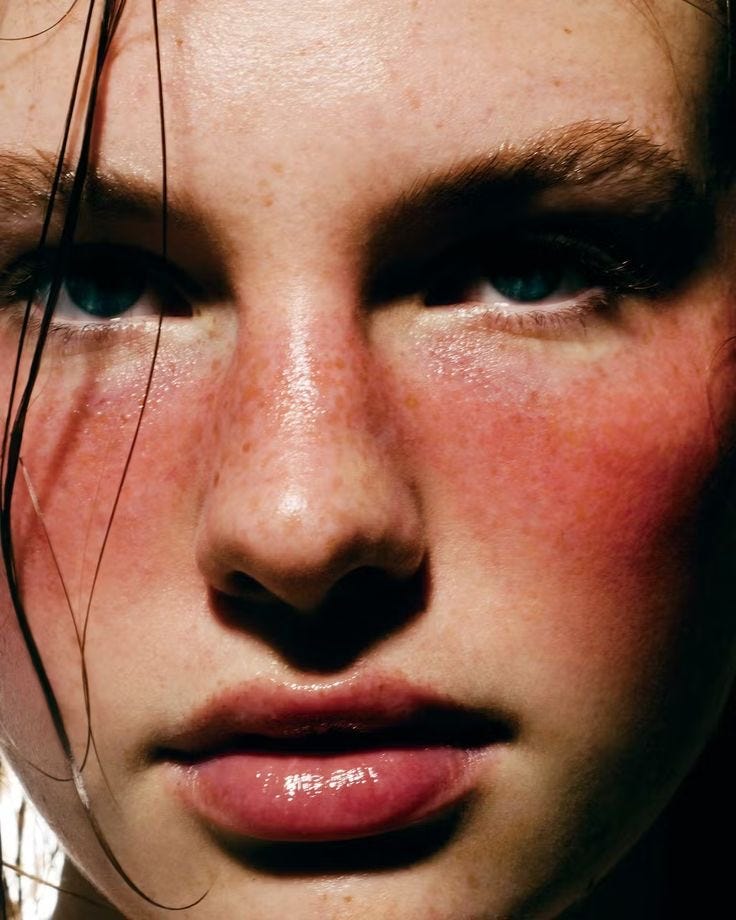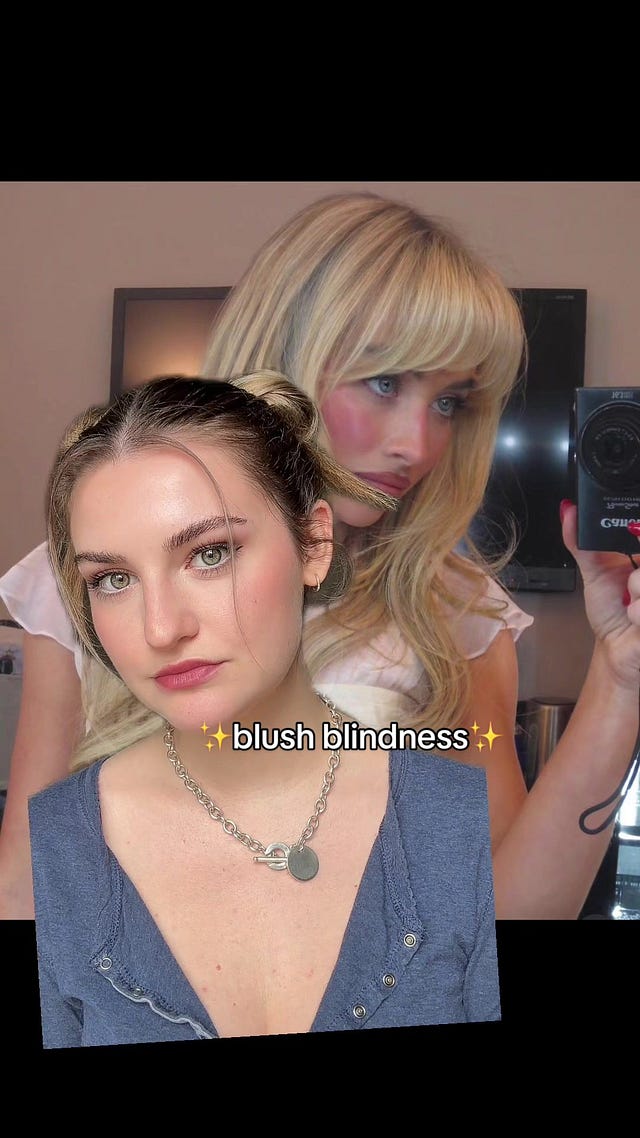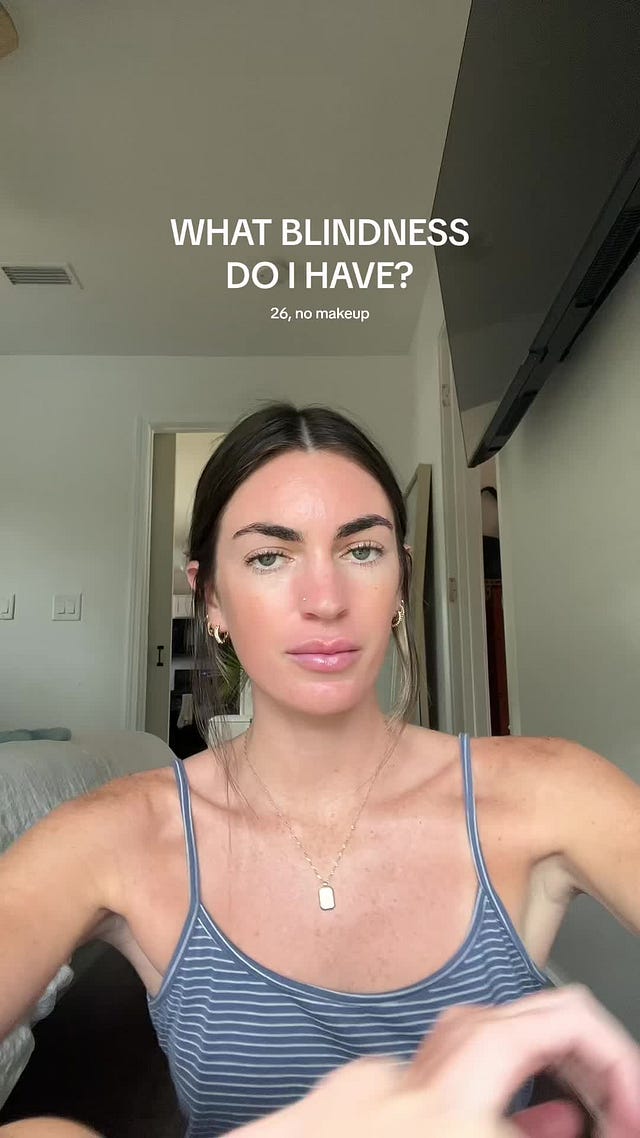TikTok Translator : Do You Have A Case Of Blush Blindness?
From Sabrina Carpenter to Hailey Beiber, why is everyone wearing so much blush?
Welcome to my new series TikTok Translator. TikTok is awash with beauty trends, but what do they all mean and should we be taking any notice? As a self assigned TikTok Translator, I’ll be doing the hard work to let you know which ones are worth the hype and which ones you can skip.
I’ll be the first to admit it: I love a bit of blush. Perhaps—just perhaps—I’m on the verge of blush blindness myself? If you’re unfamiliar with the term, think of it as a sibling to eyebrow blindness—the TikTok-inspired phrase that sums up the 2010s obsession with thick, exaggerated brows, which, in hindsight, wasn’t exactly the best look. Blush blindness is the idea that our over-flushed cheeks might one day become a cringe-worthy chapter in our makeup history.
Since the rise of trends like "strawberry girl," "boyfriend blush," "sunset blush," "glazed blush," and the "cold girl" aesthetic over the past few years, blush has firmly established itself as an essential beauty product. According to The NPD Group, blush sales in the UK grew by 23 percent in 2023 compared to the previous year, mirroring the status of blush within the beauty scene. Mintel reports that the UK colour cosmetics market, which includes blush, is forecasted to reach £1.85 billion by 2025—largely driven by younger consumers increasingly influenced by TikTok trends. With patrons like Sabrina Carpenter and Hailey Bieber both driving and sustaining the trend, it seems blush blindness isn’t going anywhere anytime soon—at least until the next trend emerges.
 Tiktok failed to load.
Tiktok failed to load.Enable 3rd party cookies or use another browser
TikTok isn’t just shaping our current looks—it’s instilling anxiety about how our present-day choices will be judged by our future selves. Will makeup ever just be fun again?
Beauty blindness trends are less about contemporary styles and more about the preemptive cringe at how today’s techniques might appear in a few years, which is ultimately just another layer of pressure. This reflects our relentless pursuit of an idealised, timeless beauty—one that’s increasingly co-opted by society.
This fixation on capturing our most "beautiful" selves reveals a deeper, more insidious desire to hack beauty and achieve a timeless look. It speaks to our obsession with anti-ageing and the pressure to be our best selves constantly, putting that above all else. It comes down to this idea of self-optimisation we’re sold. In her latest newsletter, Jessica Defino touched on self-optimisation as it relates to beauty, she said “what we call self is often appearance, and what we call optimization is often an unrealistic and oppressive ideal of perfection that is not useful to the project of human flourishing.” This stuck with me, I think especially within the beauty space, this is particularly relevant.
On TikTok, creators are sharing self-deprecating critiques of their previous looks—exaggerated brows, lashes, and even highlighter—that they once considered flawless. While it may seem like light entertainment, it reveals the immense pressure placed, mainly on women, to be perfect. To aim for the impossible, as the beauty industry continues preys on our insecurities.
This trend sets a dangerous precedent, encouraging us to scrutinise our appearance against an impossible, ever-shifting ideal. Do you stop wearing blush in an attempt to stay ahead of the trends? The trend mill is outdoing itself—not only are we expected to be slaves to the current trend cycle, but there’s now the added pressure of catering to future trends. Make it make sense.
While it might seem like harmless fun, are we simply reinforcing the same harmful ideals and building the walls higher and higher?
So, is wearing too much blush really a problem? Honestly, does it matter? It’s not about the blush per se; it’s about the standards we’re holding ourselves to. Wear it however you like—whatever makes you feel good. Isn’t that what makeup is supposed to be about? With each passing trend, we move further away from the idea of makeup as a form of self-expression, or even just even the act of giving ourselves permission to wear it for ourselves. How much of ourselves do we give away in this pursuit of an impossible standard of beauty?






